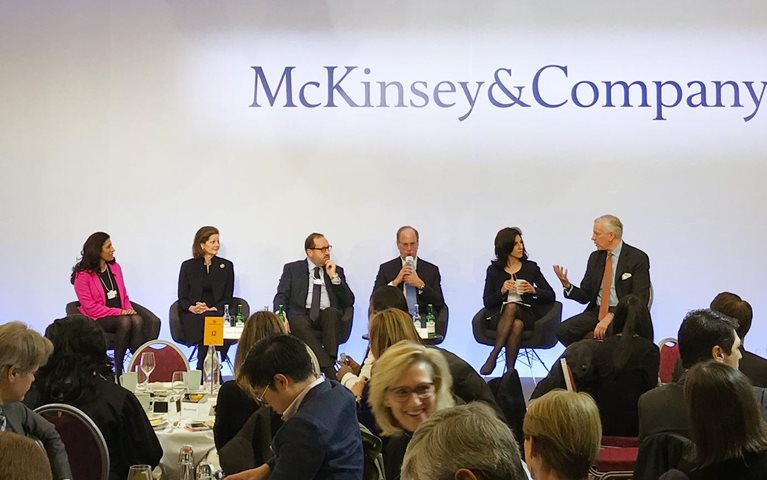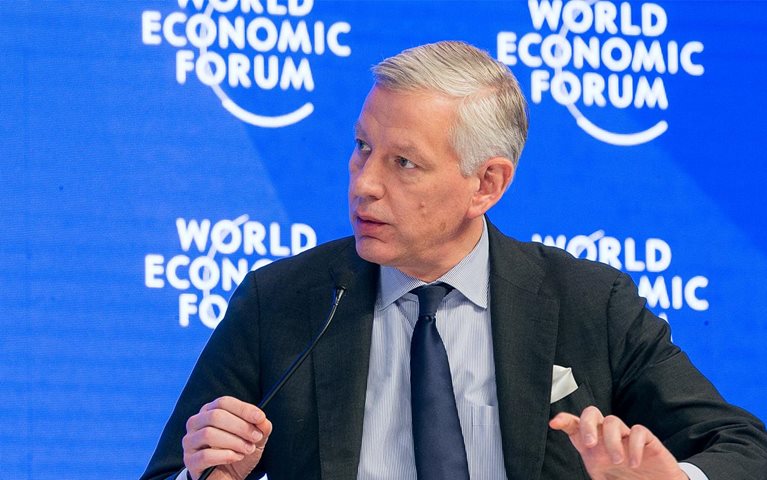Unseasonably and somewhat unnervingly mild temperatures provided a fitting backdrop for what emerged as the top issue at the 2020 World Economic Forum Annual Meeting: climate change and its risks.
But that was far from the only topic. At the end of this year’s Annual Meeting, I sat down with Rik Kirkland, our director of publishing, to share my reflections.
Here are four key takeaways, which are also captured in this video.
Climate risk is firmly established as a C-suite issue. Research published in reports like the McKinsey Global Institute’s “Climate risk and response: Physical hazards and socioeconomic impacts” has clearly convinced more and more global policy makers and business leaders that the problem of climate change has moved from a far-off priority to a here-and-now risk that demands action. Personal experiences, whether from watching the wildfires in Australia or California or numerous other small examples, have also brought home the reality that this is a topic that requires leadership from the top.
While there wasn’t much debate about the science, executives and investors were concerned about the lack of reliable data on the efforts companies and society are making, not to mention their impact. Greater clarity is required in order to speed development of new standards to help markets act more efficiently and reward progress.
Beyond metrics, the leaders I spoke with are thinking about the problem in new and creative ways. They are taking a clear-eyed look at what is driving their carbon footprints, beginning to quantify the cost of inaction, and asking how they can accelerate positive change in a way that fits within their core business agenda.
That’s a huge shift in tone from even a year ago.
The short-term economic outlook is “optimistic.” First, a caveat: the Davos consensus is not always right. Last year, many feared 2018’s synchronous growth would turn into synchronous recession. That did not prove to be the case. In fact, by a number of measures, economic growth in many countries in 2019 turned out just fine and markets hit all-time highs.
For 2020, most people I met felt that the major economies are in solid shape and should have a perfectly good year. True, one renowned investor did tell me that he was heading home to “short the market in the face of so much positivity.” But I hope, and believe, he will be proved wrong.
One cause for optimism: In contrast to last year’s broad macro-anxiety, corporate executives seemed more set than ever on leveraging technology and organizational transformation to boost productivity and capture new pockets of growth. That renewed focus should help counter worries over geopolitical risk—trade tensions and the potential for further fracturing of the global economy into a “G-2” world.
People love AI. People fear AI. While climate bumped technology from last year’s number-one slot as the Big Topic, tech and AI in particular again featured prominently.
On the positive side, we heard much excitement about how applying AI can drive good outcomes in health care (particularly around cancer research), enable smarter energy consumption, and make factories and workplaces far more productive. Our own research suggests companies that apply AI and analytics at scale are three times more likely to see outsized gains in revenue growth and cost savings than peers who linger in “pilot purgatory.” (This puts to rest the old joke retold by one executive who lamented that he had “more pilots than an airline.”) Combined with smart moves on the people side—reorganizing work processes and reskilling at scale—this leaves employees more satisfied and engaged.
But there were also long conversations about how AI can be misused and what it will take to mitigate that risk. Take the connected home. Despite its huge potential, citizens will be decidedly less positive about allowing the technology into their personal spaces unless companies are better able to answer when they ask: “What does this mean for my privacy?”
The stakeholder era is here. The Annual Meeting’s overarching theme this year was “stakeholders for a cohesive and sustainable world.” A number of sessions covered the breakdown in trust, probed globalization’s shortcomings, and underscored the need for companies to think not only about investors but also the planet, employees, and the communities in which they operate.
As with climate, the business case for progress—for continuing to build diverse and equitable workplaces, for growing more sustainably with greater inclusion—has been made. The challenge is not why but how.
Our firm, like so many others, is still searching for answers. What we have identified, however, is a set of questions that can help guide these discussions and ensure the right debate takes place over the inevitable trade-offs they will require. These include: What is our purpose and mission? Who are our stakeholders and who really benefits from our success? How are we accountable to them, over what time frame? Each company’s choices will vary, depending on its specific strengths and weaknesses, its competitive context.
What’s not in doubt, I believe, is that getting this right, for us and for so many others, will be the defining trait of 21st century corporate leadership.

